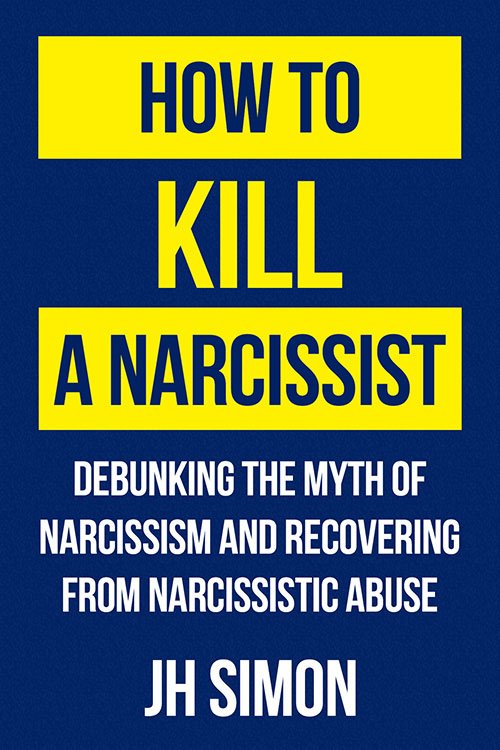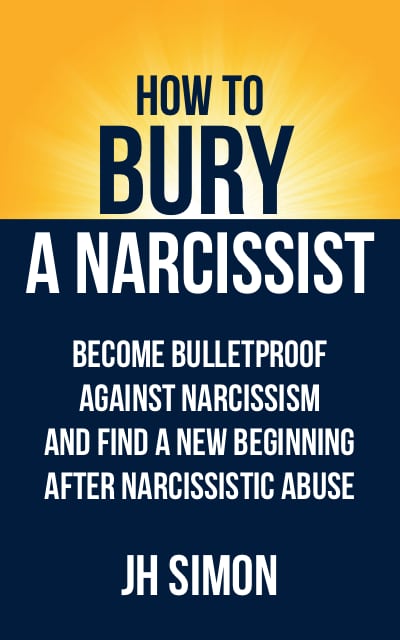Narcissistic abuse recovery is an arduous process. This beginner’s guide to healing can help you establish momentum in your journey toward freedom and growth.
Narcissistic abuse is a rigid funnel which sucks you into a state of mental and emotional claustrophobia. At first, your relationship with the narcissist appeared to be a wide-open space filled with opportunity.
But as you poured more and more energy into it, you felt the space around you vanish, and the psychological walls converging. As a result, narcissistic abuse seriously affected your willpower and rendered you powerless to fight back.
Having rid yourself of the narcissist, you now feel stuck in a different way:
The remnants of narcissistic abuse are holding you back from healing and moving on.
Yet all it takes to make a difference is a shift in perspective, and a little bit of support. Once you light the spark, there’s no telling how brightly the fire will burn.
To start the process of recovering from narcissistic abuse:
1. Drop The Victim Label
As long as you view yourself as a victim, you will unconsciously perpetuate and empower narcissism and stunt your recovery from narcissistic abuse. Although our experiences do shape us and define our present, creating an identity out of them is completely up to us.
The alternative to being a victim of narcissism is to consider yourself a target instead.
For one reason or another, you found yourself on the radar of a narcissist. That can happen to anybody, either through birth or misfortune.
The minute you become conscious of how detrimental narcissism has been to your life, you gain the profound power of choice in your narcissistic abuse recovery.
You can either let your past conditioning influence you, or you can decide to work toward a new future based on new experiences, which eventually overwrite the old ones.
How a person identifies themselves is hugely important. A label is a self-fulfilling prophecy which only deepens. Will you be a victim without power, or a target who is no longer willing to be manipulated by narcissistic abuse?
2. Establish A Space Immune From Narcissistic Abuse
The road to recovering from narcissistic abuse can be long, painful and full of frustration. This is because narcissists take away your greatest asset: your space.
We all need physical space to feel safe, psychological space to think and make wise choices, and emotional space to connect deeply with our True Self.
The narcissist snatches this away from you. They question you constantly, overwhelm your senses, and then devour you from the inside. They take away what makes you ‘you’.
Your challenge as you recover from narcissistic abuse will be to re-establish a space which is off their radar.
Some examples of creating space include:
Solitude
This can be a park where you walk and think, a cafe where you drink tea or coffee and relax, or a holy place where you can sit and ponder.
The idea is to make retreating a habit. In this physical space, you can give yourself permission to feel and think without anybody to define those thoughts and emotions.
Through solitude, you will come face to face with yourself, which can be a jarring experience. However, solitude is also a chance for you to ‘reset’ and to re-establish a connection to yourself. In solitude, you regain a sense of ‘me’ which does not include anybody else. It is an opportunity to ‘remember’ who you are as you move through your recovery from narcissistic abuse.
The Therapist’s Office
The therapist can be an excellent guide who offers you a safe space to explore your emotions and doubts. In the therapist’s office, you can gain an objective mirror and restore your sanity and grip on reality, which the narcissist works hard to destroy.
Narcissistic abuse is merciless and unabating, filling all the gaps in your mind until it has consumed your reality. Therapy is powerful for recovery because it challenges the narcissist’s programming and allows genuine insight and emotion to come through.
A good therapist will gently challenge your blind spots and encourage you to take responsibility for your emotions as well as your life situation. Also, because of the harm that narcissistic abuse does to your self-esteem, you may lose heart when you least expect it.
Narcissistic abuse creates a set of beliefs and patterns which perpetuate long after the narcissist is gone. That visit to the therapist’s office can be an excellent way to reset and get you back on track.
Meditation
Stop, breathe deeply and focus on your bodily sensations and emotions. Make a practice of this.
Your mind will fight for your attention, but if you have the perseverance and courage to move past your distracting thoughts, you can find a space of abundant peace. Meditation can help you find it.
With meditation, there is no goal; the means is the end. This paradox takes a while to grasp, but once meditation becomes a habit, the picture becomes clearer. There is a distinct separation between you and your mind. Meditation is the practice of opening this gap so you can witness the True Self.
The mind is the realm of the narcissist, and if you are heavily identified with it, you become much more vulnerable to manipulation. By practising mindfulness, you increase awareness, and by increasing awareness, you gain a powerful tool for your healing and recovery from narcissistic abuse.
3. Give Shape To Your True Self
Drawing from the principles of Gestalt therapy, the True Self can be developed by observing your current emotional state and giving it shape.
Gestalt, which is the German word for ‘form’, focuses on a person’s experience in the present moment. It allows the person to step back and view themselves from a distance. It’s a process of self-responsibility and self-awareness, which can exponentially increase your narcissistic abuse recovery.
Because the narcissist constricted your mind, body and spirit, you will need to dive inside and actively reclaim your repressed, authentic parts.
Recovering from narcissistic abuse, ultimately, is a process of salvaging who you truly are and encouraging it to come back into the light.
There are several activities which you can do that help you connect with your present experience.
You can:
Write A Feeling Journal
As you write, don’t just rehash what happened during the day. Focus inside on your emotions, and simultaneously decide what to write about. Notice the emotion and then describe it in any way that feels right.
Journalling is a great extension of therapy, and when done with courage, can be great practice for strengthening the mind/emotion connection.
This process greatly enhances your narcissistic abuse recovery by allowing you to finally express the emotions you held back during your time with the narcissist.
Write Poetry
Prose is great, yet poetry can give your emotional expression more punch.
Follow your impulses and leave the judgements behind. You are not writing for an audience, but for yourself. Explore any theme which appeals to you, no matter how dark.
Be especially sure to allow the pain you accumulated from narcissistic abuse to release onto the page.
Paint or draw
Being a great artist is not a prerequisite here. Drawing your emotions can show you things about yourself which you never imagined. It’s a way to dream while being awake, giving visual life to your subconscious emotions. The results may surprise you.
Ecstatic Dance
Ecstatic dance is an especially powerful practice for narcissistic abuse recovery. It involves ‘abandoning yourself’ to a drum-based rhythm or spiritual music, allowing the body and soul to guide you through the experience.
Judgements, thoughts and shoes can be left at the door, and a safe container is created for you to experience your energy in its purest and most joyful form.
Ecstatic dance has existed since ancient times, where Greek women worshipping the god Dionysus were known for their ‘ecstatic revelations and frenzied dancing.’ It has been practiced in India, in the Middle East as ‘Sufi swirling,’ and in the Americas.
The modern world is experiencing a renaissance of dance, with ecstatic dance classes being offered in most major cities.
Become Who The Narcissist Kept You From Being
The above activities allow you to give shape to your subconscious. They take what is hidden deep inside, and bring it out into the world. They give representation to your True Self and allow it to be seen.
These exercises will give life to aspects of yourself which you might not initially understand. This is normal. A drawing might confuse you for weeks before you can connect the dots. But when you do connect the dots, you will be more intimate with your True Self than you have ever been.
In this way, recovering from narcissistic abuse becomes a process of discovery and self-love.
No matter what activity you take up, the important thing is that it is an activity done in a space which is just for you.
It’s also crucial that you tie the activity into your emotions. When you draw, draw what you’re feeling, even if it’s abstract and meaningless. Don’t just copy another painting or create a portrait of someone. If you dance, let your emotions guide your body, and don’t be afraid to lose yourself in the music.
Surrender To Yourself
Try to leave the thinking mind behind. Lose the structure and pursue things organically based on what your impulses are telling you. It’s not about learning skills and concepts, but about connecting with your emotions, and with that, your True Self.
Like therapy, giving shape to your True Self allows you to build the mind/emotion connection. It gives you a better understanding of how you tick below the thoughts. It is the most efficient way to get to know you.
When an emotion comes up, you will have the ability to feel it fully, to understand it and to decide how and if to act. This makes you a formidable opponent to anyone looking to manipulate you.
Letting your emotions get out of hand happens to the best of us.
Emotions come and go, but you remain.
When you have developed a certain level of mastery over your emotions, you will have the wit to decide who and what has the right to them.
Best of all, you will feel more human, and more yourself than you ever have before. There’s no limit to how deep your narcissistic abuse recovery can go when the True Self is guiding the process.
4. Remember What Lies Beyond Narcissistic Abuse
We all lose heart sometimes.
Targets of a narcissist lose heart during narcissistic abuse recovery because they forgot during their relationship what it’s like to feel empowered. When you become consumed by the madness of narcissistic abuse, you forget your life purpose. You lose sight of who you are and why you are.
It is time to set your priorities straight. Narcissistic abuse recovery should be about first reclaiming your mind, followed by your True Self.
You are fighting to become yourself.
You are fighting to claim your birthright, which includes thinking, feeling and acting in your own interest. Narcissists take that away from you and convince you that it is wrong to want it.
There is a fundamental, spiritual and powerful place inside of you which can give your life clarity and meaning. When you cannot feel this vibrant presence, remind yourself that it is there. Recovering from narcissistic abuse is a war to reclaim your birthright. Remind yourself daily what you are fighting for.
5. Persevere
With narcissistic abuse recovery, stamina is a must. Having a structure to follow is also crucial. Drop the victim label, establish independent space, expand your True Self, and remind yourself daily of what you are working towards.
There is no cause more worth fighting for.











